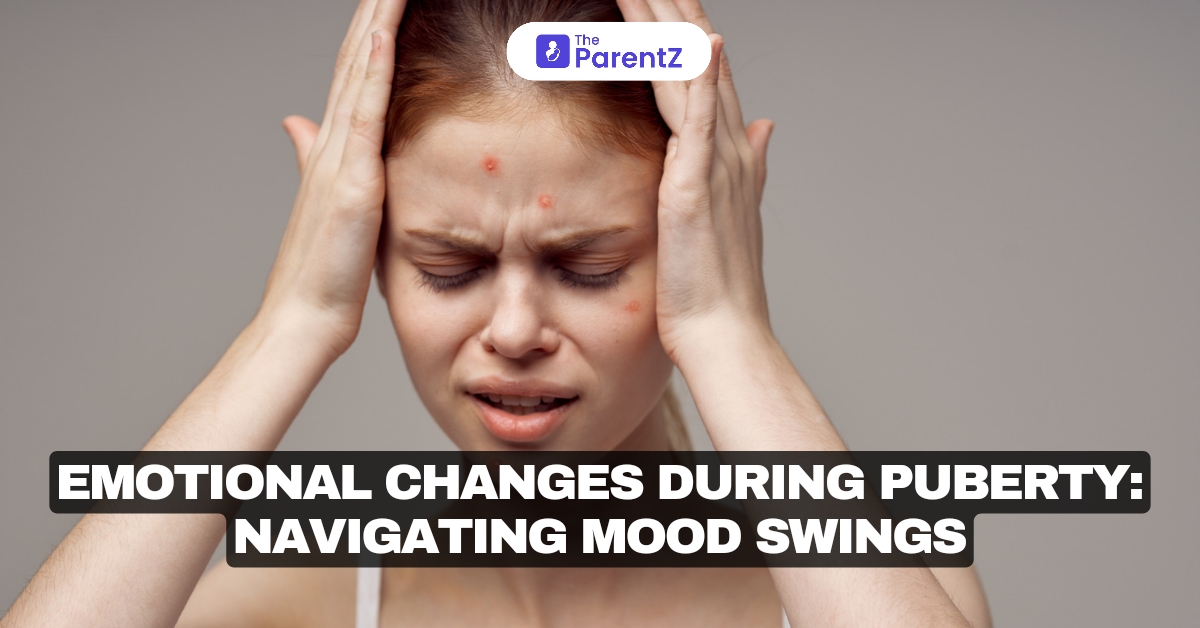Puberty is a transformative period that marks the transition from childhood to adulthood, bringing a host of physical, emotional, and psychological changes. For many parents, understanding the emotional landscape of puberty can be daunting, especially when it comes to the mood swings that often accompany this stage of development. This blog aims to provide insight into these emotional changes, helping parents navigate this challenging time with empathy and understanding.
Understanding Puberty and Its Impact on Emotions
Puberty generally begins between 9 and 14 for girls and 10 to 15 for boys, although the precise timing can differ widely. During this time, their body undergoes significant hormonal changes. The primary hormones involved are estrogen in girls and testosterone in boys, which play a crucial role in physical development and emotional regulation.
The brain is still developing during puberty, particularly the prefrontal cortex, which is responsible for decision-making, impulse control, and emotional regulation. Adolescents may struggle to manage their emotions effectively, leading to heightened sensitivity and mood swings. Understanding this biological backdrop can help parents approach their children’s behavior with compassion rather than frustration.
Common Emotional Changes During Puberty
- Mood Swings: One of the most noticeable emotional changes during puberty is the frequency and intensity of mood swings. Adolescents may experience rapid shifts between happiness, sadness, anger, and anxiety. These swings can occur for seemingly no reason, confusing parents and children.
- Increased Sensitivity: During puberty, adolescents often become more sensitive to their surroundings and the opinions of others. This heightened sensitivity can lead to insecurity and self-consciousness, particularly in social situations. Parents should know that their child may react more intensely to criticism or perceived slights.
- Identity Exploration: Adolescents begin exploring their identities during puberty, which can lead to confusion and uncertainty. They may question their values, beliefs, and even their sexual orientation. This exploration is a normal part of development but can be emotionally taxing.
- Social Dynamics: Friendships become increasingly important during puberty. Adolescents may experience shifts in their social circles, leading to feelings of loneliness or rejection. Understanding the importance of peer relationships during this time can help parents provide the necessary support.
- Anxiety and Depression: The emotional upheaval of puberty can sometimes lead to anxiety and depression. If mood swings are accompanied by persistent sadness, withdrawal from activities, or changes in sleep and appetite, it may be a sign that professional help is needed.
Coping Strategies for Parents
Navigating the emotional changes of puberty can be challenging for both parents and adolescents. Here are some strategies to help parents support their children during this time:
- Open Communication: Encourage honest conversations about emotions. Let your child know it’s okay to express their feelings, whether joyful, sad, or confused. Listening without judgment can foster a safe space for your child to share their thoughts.
- Educate Yourself: Understanding the biological and psychological changes occurring during puberty can help parents respond more effectively. Familiarize yourself with the common signs of emotional distress and the normal changes that occur during this period.
- Model Emotional Regulation: Children learn from their parents. By demonstrating healthy ways to cope with stress and manage emotions, parents can provide valuable lessons. Share your own experiences and how you deal with difficult feelings.
- Encourage Healthy Outlets: Help your child find constructive ways to express their emotions. This could include physical activities like sports, creative media like art or music, or mindfulness practices such as meditation or journaling.
- Be Patient and Understanding: Recognize that mood swings are normal during puberty. Approach your child’s emotional outbursts with patience and understanding. Instead of reacting with frustration, validate their feelings and remind them that it’s okay to feel upset.
- Seek Professional Help if Needed: If you notice persistent changes in your child’s mood or behavior that concern you, don’t hesitate to seek professional help. A counselor or therapist can also provide additional support and coping strategies.
Conclusion
Puberty is a complex and often tumultuous time for adolescents and their families. Understanding the emotional changes that occur during this period can help parents provide the support their children need. Parents can navigate this challenging phase with empathy and understanding by fostering open communication, modeling healthy emotional regulation, and encouraging positive outlets for feelings. Remember, while mood swings may feel overwhelming at times, they are a natural part of growing up, and with the right support, both parents and children can emerge from this period stronger and more connected.








Be the first one to comment on this story.